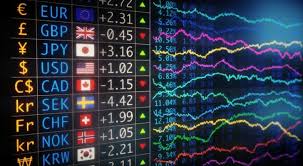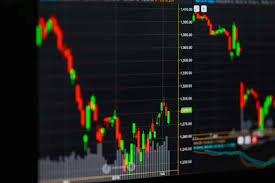
If you are considering a career in the exhilarating world of currency trading, you are entering a domain filled with opportunities and challenges. Forex trading jobs are among the most sought-after positions in the financial sector due to the potential for high earnings and the dynamic nature of the market. For detailed insights and resources, you can visit forex trading jobs trading-asia.com. In this article, we will explore various aspects of forex trading jobs, the skills needed, career paths, and effective strategies for success.
What is Forex Trading?
Forex, or foreign exchange, refers to the global marketplace for trading national currencies against one another. It is one of the largest and most liquid financial markets in the world, with billions of dollars traded daily. Forex trading involves speculating on the price movements of currency pairs, leveraging both long and short positions.
Types of Forex Trading Jobs
Several roles exist within the forex trading landscape, each with unique responsibilities and required skill sets. Let’s delve into some of the primary positions available:
1. Forex Trader
Forex traders execute trades on behalf of themselves or the institutions they work for. Their main goal is to maximize profits by analyzing market trends and making informed trading decisions. This role requires a strong understanding of market indicators, risk management, and trading platforms.
2. Forex Analyst
Forex analysts focus on evaluating market conditions and providing actionable insights to traders. They study economic indicators, market trends, and geopolitical events to forecast currency movements. A successful analyst must possess strong analytical skills and stay current with global financial news.
3. Forex Broker
Forex brokers facilitate trading for clients by providing access to trading platforms and market data. They earn commissions or spreads from the trades executed through their platforms. Brokers must have excellent communication skills and a solid understanding of trading practices.
4. Risk Manager
Risk managers play a critical role in protecting companies from significant losses in trading operations. Their responsibilities include analyzing exposure, developing risk mitigation strategies, and ensuring compliance with regulations. A background in finance and strong quantitative skills are necessary prerequisites for this position.
Skills Required for Forex Trading Jobs

Regardless of the specific role, there are several critical skills that are universally preferred for success in forex trading jobs:
1. Analytical Skills
The ability to analyze and interpret data is fundamental in forex trading. Traders and analysts must have a keen eye for trends and market patterns to make sound decisions.
2. Technical Proficiency
Familiarity with trading platforms, software tools, and technical analysis is essential. Traders often utilize charting software to predict market movements.
3. Risk Management
A successful trader must develop a thorough understanding of risk management strategies to protect their capital and maximize profitability.
4. Emotional Control
Forex trading can be emotionally taxing, especially in high-volatility situations. Successful traders maintain emotional discipline, avoiding impulsive decisions.
Career Paths in Forex Trading
Entering the forex trading sector can lead to a variety of career paths. Here are a few possibilities:
1. Retail Trading
Many individuals start their career as retail traders, often trading in their personal accounts. This path allows traders to explore the market, develop skills, and potentially transition into professional roles.
2. Institutional Trading

Working with hedge funds, banks, or investment firms can offer a more structured environment. Institutional traders often manage large accounts and develop strategies in collaboration with teams.
3. Education and Training
As you gain experience, opportunities in training or mentoring new traders may arise. Sharing your knowledge through seminars, courses, or one-on-one coaching can be rewarding both professionally and financially.
Getting Started in Forex Trading Jobs
For those interested in pursuing forex trading jobs, here are some steps to consider:
1. Education
While formal education isn’t strictly required, obtaining a degree in finance, economics, or a related field can provide a solid foundation. Many traders also take specialized courses to improve their trading skills.
2. Gain Experience
Starting with a demo trading account can help you practice and hone your skills without the pressure of real capital at risk. Once you feel confident, you can transition to live trading.
3. Network
Engaging with other traders and financial professionals can open the door to job opportunities. Attend conferences, participate in online forums, and build relationships within the industry.
4. Stay Informed
The forex market is affected by countless factors, so it’s crucial to stay updated on world events and economic indicators that could impact currency valuation.
Conclusion
Forex trading jobs can be a rewarding career choice for those with a passion for finance, a competitive spirit, and a willingness to learn. By understanding the various career paths, honing essential skills, and seeking continuous education, aspiring traders can find success in this dynamic market. Whether you aim to be a trader, analyst, or broker, the world of forex trading offers various opportunities to explore.

Recent Comments